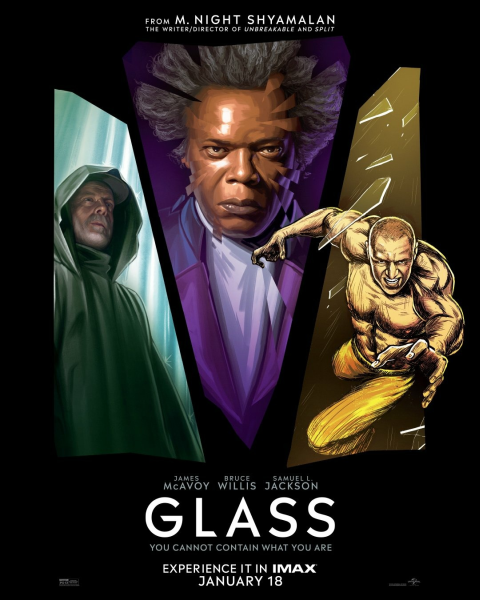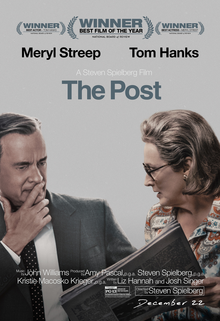
Hated, adored, but rarely ignored, he is M. Night Shyamalan.
Having shot to super-stardom with his third feature, The Sixth Sense, in 1999 (which I must confess I still have never seen), Shyamalan’s career has been something of a roller coaster ride ever since, rising and falling yet never again reaching its initial peak by most measures (though some might quibble on this particular point).
Was it all his fault? Probably not. Studio marketing departments are notoriously awful when a movie doesn’t fit a conventional mold and they don’t know how to sell it. Heck, many of the movies at the top of “greatest of all-time” lists were box office flops and/or critically panned when first released, yet managed to find a major following later (e.g. The Shawshank Redemption), so I’m not going to sit here and call Shyamalan a hack fraud.
Nevertheless, by 2010, he’d pretty much bottomed out, to the point that people booed when they saw his name in the trailer for Devil (a film he neither directed nor wrote the screenplay for). Helming the 2013 Will and Jayden Smith vanity project After Earth did nothing to jump-start his public perception either, nor did 2015’s The Visit, but in early 2017 there were rumblings that he might finally be on the comeback trail when Split was a major hit in January (historically, the island of misfit movies) on a less than $10 million budget.
But let’s not get ahead of ourselves, for we begin in a simpler time, before terrorism, smartphones, and cinematic universes.

Remember what I said about studios being terrible at marketing things they can’t easily put in a box (or simply put in the wrong box)?
Well, this is “Exhibit A” for Shyamalan’s career, because after his success with The Sixth Sense, Touchstone (aka Disney) wanted to market
Unbreakable as another “supernatural thriller”, which, you could argue the technical aspects of both of those terms and be correct, but let’s call it what it really is: an original comic book film.
And by that standard it’s a darn good one, nearly flawless in my opinion.
In fact, I remember seeing Unbreakable in the theaters as a kid and actually liking it, and it’s only gotten better with each re-watch.
First off, it’s got arguably the best performance of Bruce Willis’s career, and it doesn’t even rely on witty one-liners or sexual tension with his co-star (yes, that’s a Moonlighting reference). Of course, it helps to be paired across Samuel L. Jackson in a signature role, and Robin Wright brings a lot to the table in support.
That said, the star of this show is M. Night Shyamalan the comprehensive film-maker, as Unbreakable relies on many unbroken shots (some you might not even notice) and required sets built specifically for this purpose (something he sadly no longer can do because he now insists on lower budgets to maintain creative control, which I have mixed feelings about). It’s a slightly fictional world, to be sure, but it feels real enough, and he knows not to show too much (I particularly love how he visually handles the train crash and the aftermath), but rather just enough to service the story.
It’s “gritty and realistic” in all the best ways; it’s dramatic (The kitchen scene? Hello), yet, at times, tender; and it’s mature, yet not inaccessible.
I love it, and I wish more people would see it, because to me Unbreakable is nothing less than an underrated classic of a film.
Rating: ★★★★½ (out of five)

Ah yes, the film that got M. Night Shayamalan out of the red and into the black after fifteen years in movie purgatory.
If Unbreakable is a comic book movie by way of Alfred Hitchcock then Split is more akin to William Castle, in that both filmmakers strove for similar goals but Castle’s work tended to be more pulpy and exploitative.
Split is a fine film, not life-changing, but certainly entertaining, and I give it a lot of credit for having no jump scares (at least as far as I can remember) in a genre (and for a producer) that all too often relies on them in order to convince the teenagers that they are, in fact, scared.
I also very much enjoy the fact that within ten, maybe even within five minutes, you are in it, and the rest of the details come later as need be.
In contrast to Unbreakable, however, this is clearly the James McAvoy show. I’ll give him a bit more credit, but I’d say his performance is similar to Tom Hardy’s in Venom: neither good nor bad; it simply is, and you’re either on board or not. The key difference is that McAvoy literally has multiple personalities to slip in and out of, sometimes on a dime, which is impressive in its own right.
My one major knock on the movie is that the backstory of our protagonist (admirably played by Anya Taylor-Joy) feels exploitative (there’s that word again), not to mention lacking in its payoff relative to how much is set up; and there are moments that stretch logic and believability, even on the movie’s terms (but we’ll get much more into that with the next one).
That said, it’s a solid comeback effort for a film-maker that desperately needed a hit. Far from a classic, but nothing anybody needs to feel embarrassed about.
Rating: ★★★½ (out of five)

So, if you haven’t figured it out by now, Glass is a sequel to both Unbreakable and Split, which is less a “you got peanut butter in my chocolate” situation and more a “Domino’s Starburst Chocolate Lava Cake” type thing. Both good on their own, but do we really need them together? Seems like that’s going a little too far, and that’s really the overarching theme of the film: going too far in a few places, from story beats, to cameos, to deleted scenes from previous work (no joke).
This is not to say that it’s the worst movie ever. For one thing, they brought back as much of the original cast as they could, which is appreciated, and there’s plenty of stuff that’s interesting and entertaining on its own (especially once Samuel L. Jackson finally gets to play), but trying to combine these two worlds (and then the extra layer that comes with the third movie) just doesn’t work. As I said, Unbreakable, though it does have its supernatural elements, feels grounded and realistic, whereas Split is a bit of a different animal, and then Glass just goes off the rails (cue maniacal laughter).
As you might expect, given that it’s an M. Night Shyamalan film, there are a lot of spoilers I could get into, but I won’t, but I will say that not only are there scenes that “break the world,” but in the end the movie as a whole is just not a satisfying experience (perhaps this is because I’m more of an Unbreakable fan than a Spilt fan, maybe your experience will be different depending on who you care about more).
Last, but not least, there’s some truly awful dialogue in this movie, like Halloween-level awful, but at least it’s just in fits and starts and not an issue for the entire run time.
If you’re a completionist, Glass will be worth your time down the road, but if you’ve seen the other two you shouldn’t feel committed to having to see this one. Unfortunately, it’s just not that good. Much like Rogue One, if it was a fan film I wouldn’t judge it as harshly.
Rating: ★★½ (out of five)

